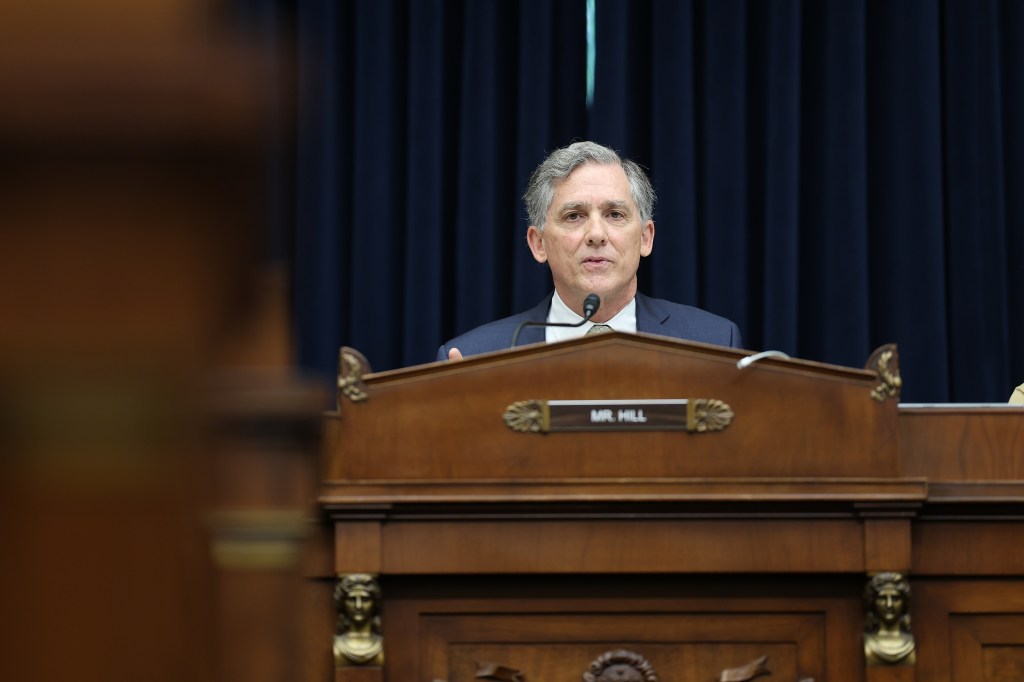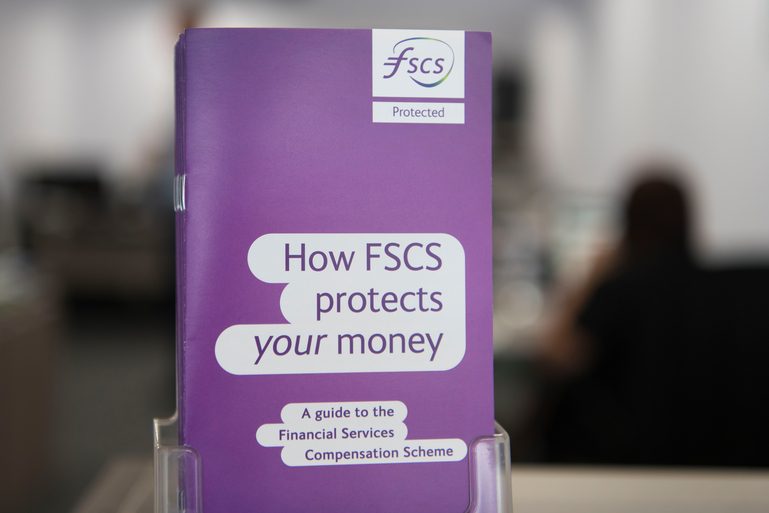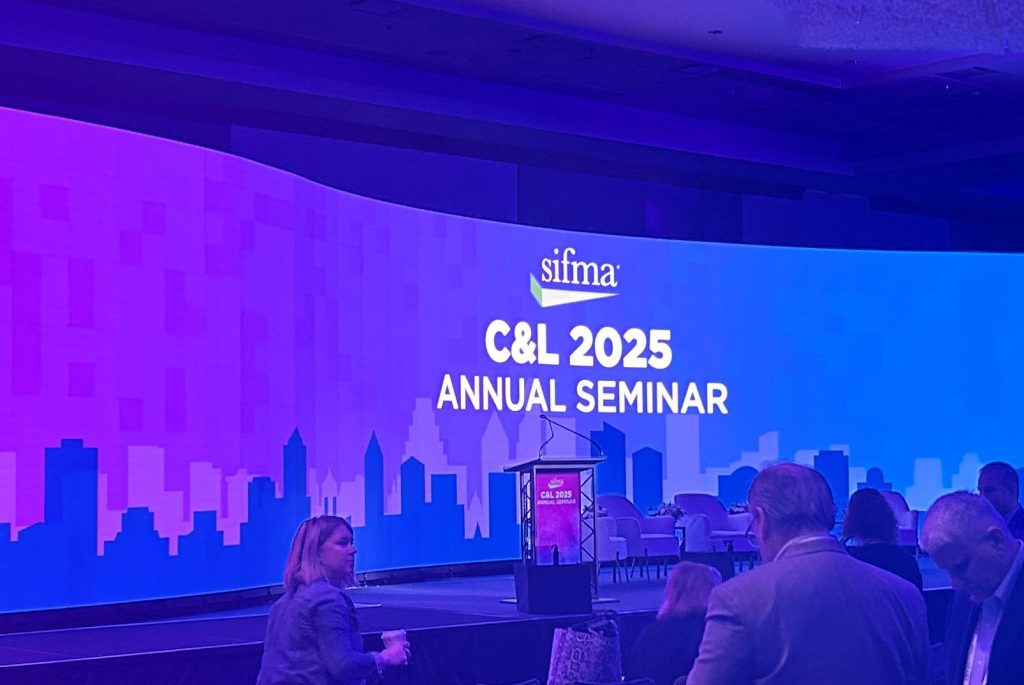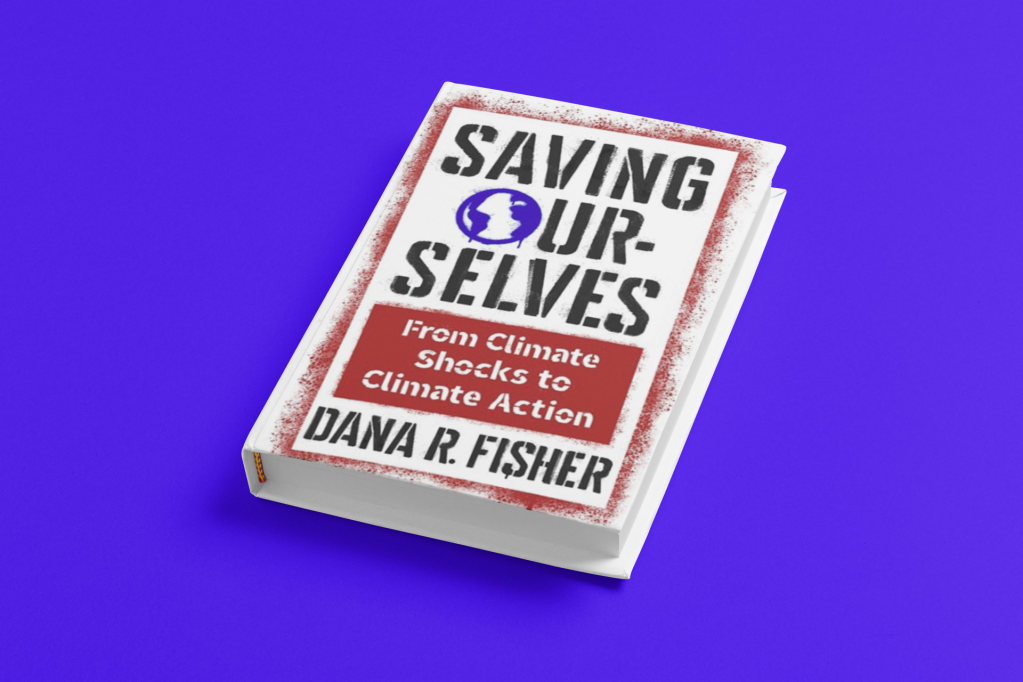Although we have known for decades that climate change is an existential crisis, we are not close to achieving the systemic change we need to meet even the modest goals we have pledged – never mind the bolder ones that are actually needed.
In her book Saving Ourselves – From Climate Shocks to Climate Action (Columbia University Press, 2024), Dana R Fisher, director for the Center for Environment, Community, and Equity and a professor at American University’s School of International Service, argues on behalf of the bold agenda.
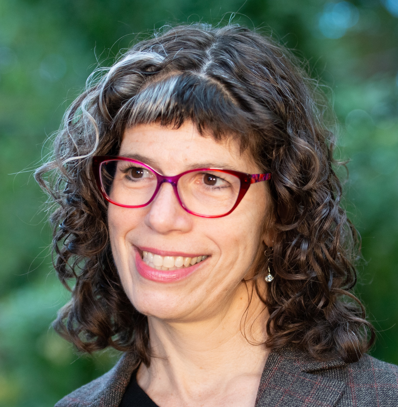
In her view, it is the only way the fossil fuel interests, which maintain a stranglehold on political and economic power, will ever be compelled to act, and certainly the only way to get the politicians funded in part by them to do so. So she advocates for a mass mobilization that responds to the growing severity and frequency of disastrous events.
Fisher assesses the current state of affairs and shows why public policy and private-sector efforts have been ineffective, how the use of more direct action could be used effectively, if the actors and agitators create a community, capitalize on shocking moments, and cultivate resilience.
In one of her examples of what effective advocacy could look like, she argues for tying the climate movement with the labor movement, since the labor movement continues to flex its muscles in response to growing inequality. “As the world warms and climate shocks get worse, inequality will continue to increase, and labor will become more aligned with the plight to save ourselves,” she argues.
Power of organizing
I asked Fisher about the particular power of organizing as a means to fight climate change – and if the number of organizers we have now is sufficient. How will we get to that critical mass if a decent number of people revere certain politicians and news programs that tell them a different set of facts? And if they’re far more concerned about the price they’re paying for childcare and rent?
“Organizing is a tool that can be used to co-ordinate and mobilize citizens,” Fisher said. “It is the only way to take power back from the fossil fuel-connected vested interests that have privileged access to political power and natural resources.
“To date, we are nowhere near where we need to be in terms of the proportion of our society that is civically engaged and organized to take on these powerful interests. As the world warms and climate shocks come more frequently and hit our communities with greater severity, the number of people getting involved in the struggle to save ourselves and organize will rise. It is the personal experience of the climate crisis that will activate many to get out of their personal news bubbles and mobilize,” she added.
To keep playing the part of the skeptic, I asked her how feasible it would be to get to year 2050 and have a power sector in the United States and Europe powered by renewables. How will everyone afford these new sources, and can we retrain everyone to be a part of the renewable energy sector?
“It will take everyone doing anything they can to get us to the other side of the climate crisis. Given that we need massive action, perfection should not be expected.”
Dana R Fisher, author and professor
“It is possible to transition away from fossil fuels in the US and Europe by 2050, but fossil fuel interests have privileged access to power and resources that makes the level of systemic change that is needed very difficult to reach,” Fisher responded.
“Research shows that clean energy is already less expensive than fossil fuels in much of the US and Europe. However, transitions take motivation and political will. Training workers will be necessary to support energy-dependent communities, but fortunately, there are numerous federal programs that are expanding to support workers and young people. Many of these programs are being supported in part through funding from the Inflation Reduction Act and are designed to prepare them to be part of the renewable energy sector.”
I asked her If a business wants to make a difference – without making overly bold statements and then falling short, possibly even being charged with greenwashing – what are the small but meaningful steps it could take?
Community and solidarity
Fisher was ready to respond as boldly as she advocates acting in her book. “It’s too late for small steps to address the climate crisis to get us where we need to go, given how bad the problem has become,” she said. “Instead, I would encourage businesses to support the transition to clean energy, support training workers for the green economy, and work with their local communities to help cultivate resilience in preparation for the climate shocks that are coming.”
I wanted some encouraging words for the people on the front lines of this change – passionate activists fighting for change – who sometimes get taunted when they take a plane trip and called hypocritical. How does she advise climate organizers and activists to keep their spirits up?
“Organizing is challenging work, especially in the highly polarized political environments of the US and in Europe. As I talk about at the end of the book, we need to create community and solidarity that will make it possible to support one another as the going gets tough. We know that getting to the systemic changes needed to address the climate crisis is a marathon and not a sprint; I’ve been working in this space for the past 25 years and there’s so much more we still need to do,” she said.
“By building and embedding our work within community, we will have the support and the social capital necessary to withstand the hard days that are in our future. Personal connections are also great when it’s time to celebrate the wins as they come,” she adds. “It will take everyone doing anything they can to get us to the other side of the climate crisis. Given that we need massive action, perfection should not be expected.”




